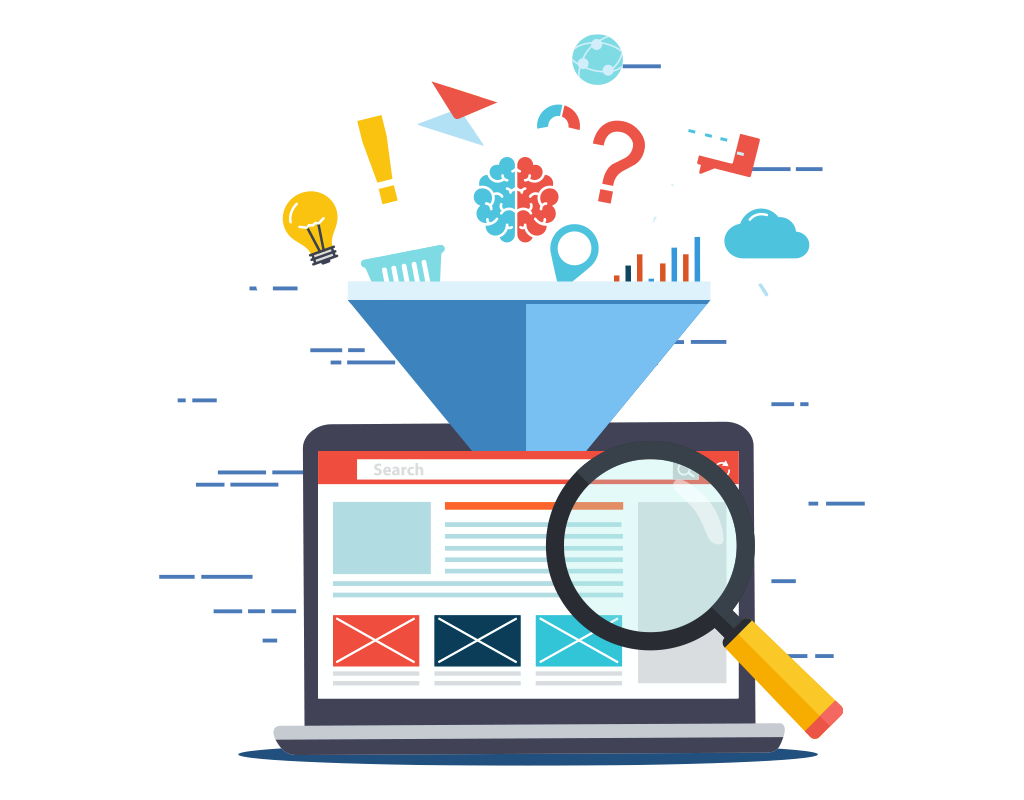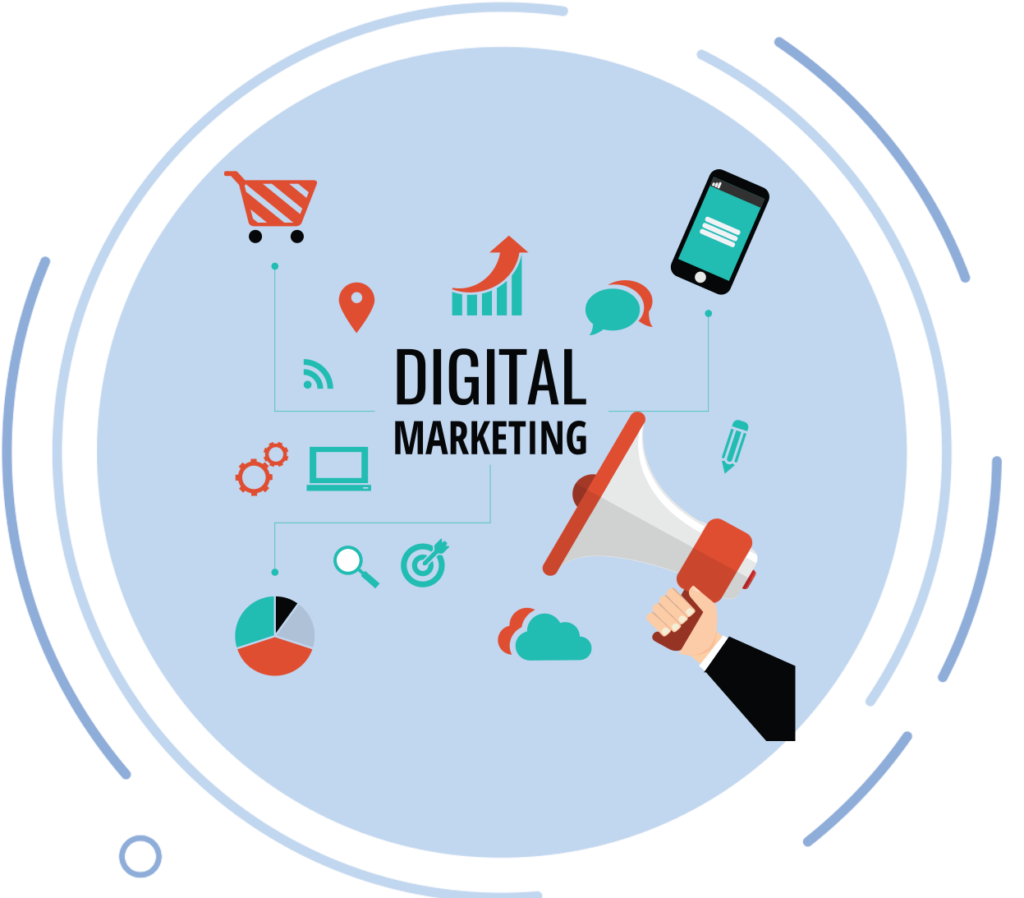In the ever-evolving world of business, digital marketing has emerged as a cornerstone for success. With the rapid advancement of technology and the increasing reliance on the internet, businesses must adapt to digital strategies to stay competitive. Whether you own a small startup or a large enterprise, leveraging digital marketing can significantly impact your growth, brand visibility, and revenue. In this blog, we will explore the importance of digital marketing in today’s business landscape and how it can help businesses thrive.

1. The Shift to Online Consumer Behavior
The way consumers interact with brands has changed dramatically over the past decade. With more people spending time online, businesses must establish a strong digital presence. Statistics show that over 5 billion people use the internet globally, and a significant portion of them rely on digital platforms for shopping, research, and entertainment. Digital marketing allows businesses to meet consumers where they are—on search engines, social media, and other online platforms.
2. Cost-Effective Marketing Strategy
Unlike traditional marketing methods such as TV ads, billboards, and print media, digital marketing offers a cost-effective solution for businesses of all sizes. Small businesses, in particular, can leverage digital marketing channels like social media, email marketing, and search engine optimization (SEO) to reach a large audience without breaking the bank. Paid advertising, such as Pay-Per-Click (PPC) campaigns, ensures that businesses only pay for actual engagement, making it a highly efficient investment.
3. Improved Targeting and Personalization
One of the most significant advantages of digital marketing is the ability to target specific audiences. Through data analytics, businesses can segment their audience based on demographics, interests, behavior, and purchasing history. This enables personalized marketing campaigns that resonate with potential customers, increasing the chances of conversion. Tools like Google Ads, Facebook Ads, and email marketing automation help businesses tailor their messages to the right audience at the right time.
4. Search Engine Optimization (SEO) for Better Visibility
SEO plays a crucial role in digital marketing. By optimizing website content for search engines, businesses can improve their online visibility and attract organic traffic. Keywords, high-quality content, backlinking, and technical SEO practices help websites rank higher on search engine results pages (SERPs). Since most consumers rely on search engines to find products and services, a strong SEO strategy can drive long-term success for businesses.
5. Social Media Marketing for Brand Awareness
Social media platforms like Facebook, Instagram, LinkedIn, and Twitter have revolutionized the way businesses connect with their audience. With billions of active users, social media marketing provides an opportunity to build brand awareness, engage with customers, and drive traffic to websites. Regular posting, interactive content, influencer collaborations, and paid social media campaigns help businesses establish a strong online presence and foster customer loyalty.
6. Email Marketing for Direct Communication
Email marketing remains one of the most effective digital marketing strategies. With a well-segmented email list, businesses can send personalized content, promotional offers, and updates directly to their customers’ inboxes. Email marketing has a high return on investment (ROI) and is a great way to nurture leads, retain customers, and encourage repeat purchases.
7. Content Marketing for Authority and Trust
Content is king in the digital marketing world. High-quality, informative, and engaging content helps businesses establish authority in their industry. Blogging, video marketing, infographics, and podcasts allow businesses to educate their audience while improving SEO rankings. By consistently providing valuable content, businesses can build trust with their customers and position themselves as industry leaders.
8. Pay-Per-Click (PPC) Advertising for Instant Results
For businesses looking for immediate results, PPC advertising is an effective strategy. Platforms like Google Ads and Facebook Ads enable businesses to create targeted ads that appear at the top of search results or social media feeds. PPC campaigns drive instant traffic, generate leads, and increase conversions. With proper optimization and budget management, businesses can achieve a high ROI from their PPC campaigns.
9. Analytics and Performance Tracking
One of the major advantages of digital marketing is the ability to track and measure performance. Tools like Google Analytics, Facebook Insights, and email tracking software provide valuable data on user behavior, campaign effectiveness, and conversion rates. By analyzing these metrics, businesses can refine their strategies, optimize their campaigns, and achieve better results over time.
10. Competitive Advantage in a Digital World
With more businesses investing in digital marketing, staying ahead of the competition requires a well-structured strategy. Companies that leverage SEO, social media, content marketing, and paid ads have a better chance of outperforming competitors. Digital marketing levels the playing field, allowing even small businesses to compete with established brands.
11. Mobile Marketing for a Growing Audience
With the rise of smartphones, mobile marketing has become an essential part of digital marketing. Mobile-friendly websites, SMS marketing, in-app advertising, and push notifications enable businesses to reach users on their mobile devices. Since a large percentage of online interactions happen on mobile, optimizing digital strategies for mobile users can drive significant engagement and sales.
12. Future-Proofing Your Business
The digital landscape is continuously evolving, and businesses that fail to adapt risk becoming obsolete. Investing in digital marketing ensures long-term sustainability and growth. As new technologies emerge, businesses that embrace digital strategies can pivot quickly, meet consumer demands, and stay relevant in an ever-changing market.

Conclusion
Digital marketing is no longer optional—it is a necessity for businesses that want to succeed in today’s competitive landscape. From SEO and social media marketing to content marketing and PPC advertising, the digital world offers endless opportunities to grow your brand and reach your target audience. By implementing an effective digital marketing strategy, businesses can enhance their online presence, drive traffic, increase conversions, and ultimately achieve greater success.
Are you ready to take your business to the next level? Start leveraging digital marketing today and stay ahead of the competition!